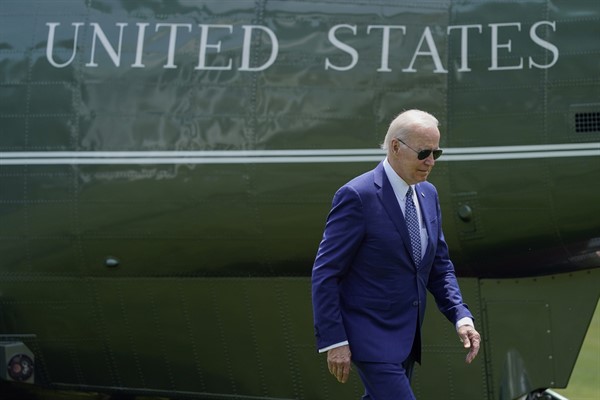I had planned this week to write about my impressions of Beirut from my first visit there in more than three years. But I’ll save that for next week’s newsletter, because U.S. President Joe Biden’s upcoming visit to the Middle East is screaming out for corrective analysis. The problem with the trip is not so much the fact of its occurrence, but the framing of its purpose by U.S. officials, which appears to be based on an outmoded understanding of how foreign influence works in the region’s functional but eroding system of states.
Biden is scheduled to make stops in Saudi Arabia and Israel next week, but the messaging and substance of these visits has been an incoherent mess. The U.S. president has decided to reverse his stance on isolating Saudi Arabia’s ruler, Crown Prince Mohammed bin Salman, despite failing to extract any commitments to improve human rights in the kingdom in exchange. The White House has also insisted that Biden won’t directly ask Riyadh to increase its domestic oil production, even though sky-high oil prices may be the single most important policy issue ahead of the U.S. midterm elections. Biden has insisted the issue is “not the purpose of the trip.”
In Israel, Biden’s visit comes weeks after the collapse of Prime Minister Naftali Bennett’s coalition government. The country is headed for yet another round of elections, which might return former Prime Minister Benjamin Netanyahu to power. Biden wants to claim that his administration has supported the Palestinian cause, but that is a difficult position to defend, given that he did little to limit the damage Israeli forces caused in Gaza during last year’s war. Washington has also taken very few meaningful steps to halt the spread of Israeli settlements in Palestinian territories.

